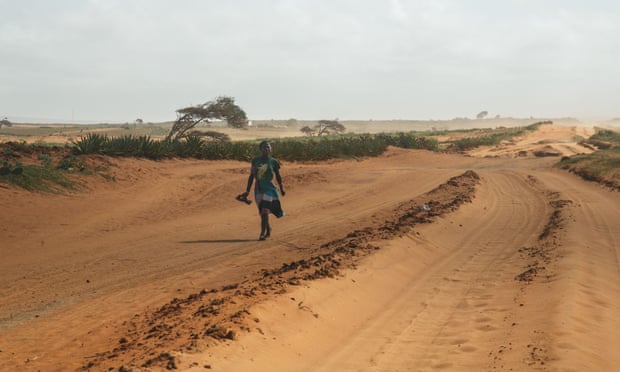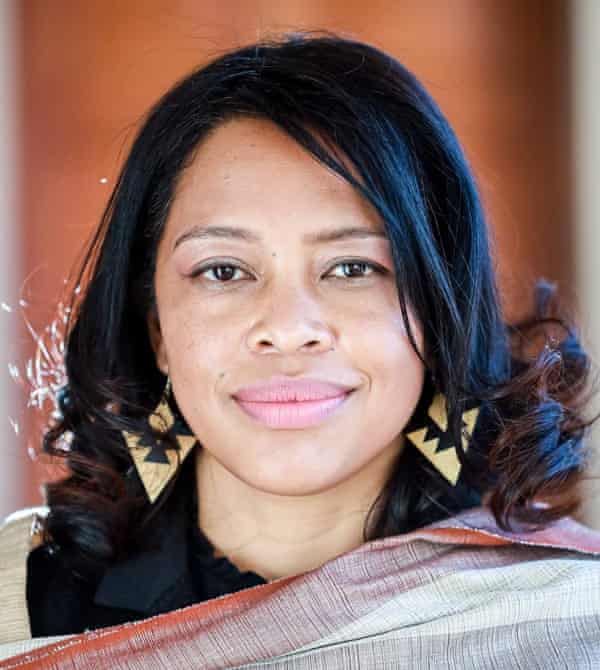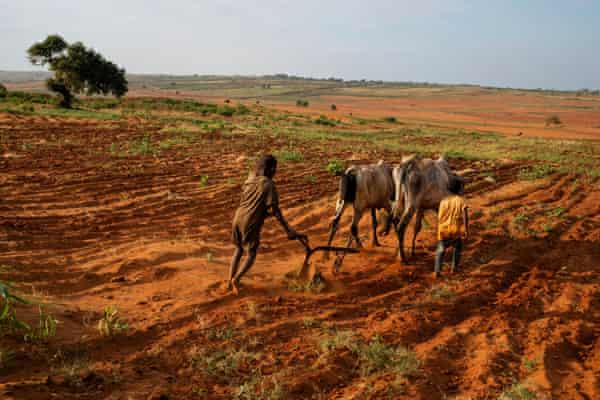Politician says droughts and climate-induced famine in the country are a result of the behaviours of rich nations
More than a million people facing the first climate-induced famine in Madagascar are paying the price for cheap flights in Europe and appliances such as gas heaters, the country’s environment minister has said.
For several years now, the south of Madagascar has suffered successive droughts of increasing severity, and the situation has deteriorated sharply over the last few months. In August, the UN said the country was facing the world’s first climate change famine. On Tuesday, a World Food Programme representative spoke of a “heartbreaking” visit to the country.

Speaking to the Guardian at Cop26, Baomiavotse Vahinala Raharinirina, Madagascar’s minister for the environment and sustainable development, said the failure of rich countries to meet a $100bn climate finance target means her country cannot afford to build a water pipeline to alleviate the island’s worst drought in 40 years.
Developed countries have been promising to deliver the $100bn in climate finance to help countries such as Madagascar adapt since 2009, but last week that target was delayed yet again.

Raharinirina said a pipeline that would bring water from the north of the island to the drought-stricken south would cost $900m, and the country could not afford it. “I was wondering three days ago during a negotiation session why it is so difficult for rich countries to pay this money. It’s not aid. It’s accountability,” she said. “My opinion is that in the north, there is a psychological distance to the problem. People see documentary and pictures but do not feel it like we feel it when I go to the southern part of my country.”
She added there was a dissonance between the behaviour of Europeans and Americans and the consequences for people in the global south such as Malagasies enduring 45-degree temperatures all year round with little rainfall, calling for the global north to reflect on how countries such as Madagascar can live “with dignity”.
“People from the deep south of Madagascar are victims of something that they didn’t do,” she said.

“They move to the west of Madagascar and it’s a real risk to the biodiversity. When they move, they directly go to the protected areas where they can find resources like wood and medicinal plants – things that are normally forbidden,” she said.
Madagascar is the fifth largest island in the world and is home to many animals and plants found nowhere else on Earth. More than 600 new species were discovered between 1999 and 2010.
Raharinirina argued that cheap flights in the global north should be banned and asked Britons not to fly to popular holiday destinations such as Spain. “We should forbid the low-cost flights where you sometimes have two people go from Paris to Madrid or from Edinburgh to Vienna. It’s a high-cost flight for people in my country. They pay the price of that.
“In September, I was attending the IUCN congress in Marseille, and I was totally shocked to see people dining outside restaurants that they are heating [with gas]. This should be illegal,” she said.
“There are many things that should be changed in the way of life of many European or North American or Chinese people. You have to make a choice or have to make a sacrifice.”



